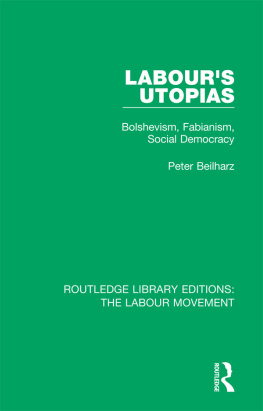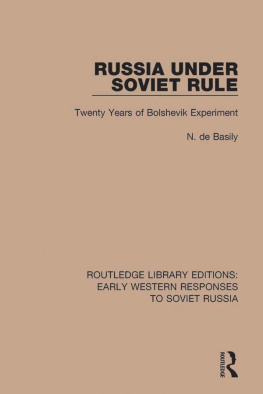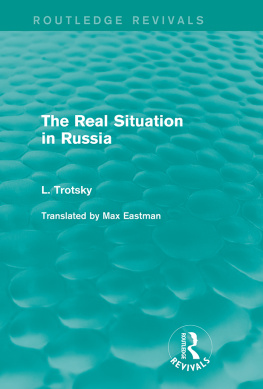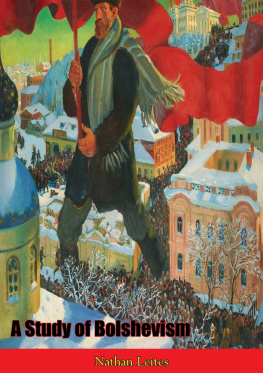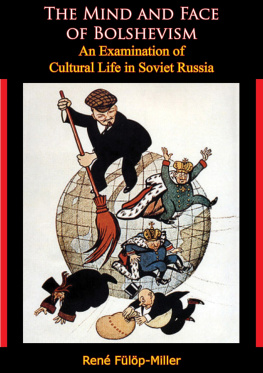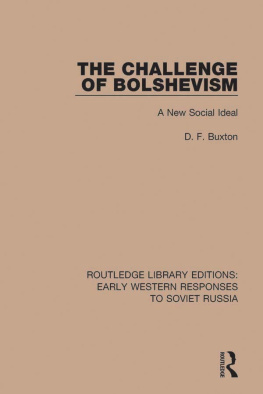First published in 1931 by George Allen & Unwin Ltd
This edition first published in 2018
by Routledge
2 Park Square, Milton Park, Abingdon, Oxon OX14 4RN
and by Routledge
711 Third Avenue, New York, NY 10017
Routledge is an imprint of the Taylor & Francis Group, an informa business
1931 J. de V. Loder
All rights reserved. No part of this book may be reprinted or reproduced or utilised in any form or by any electronic, mechanical, or other means, now known or hereafter invented, including photocopying and recording, or in any information storage or retrieval system, without permission in writing from the publishers.
Trademark notice: Product or corporate names may be trademarks or registered trademarks, and are used only for identification and explanation without intent to infringe.
British Library Cataloguing in Publication Data
A catalogue record for this book is available from the British Library
ISBN: 978-1-138-04993-2 (Set)
ISBN: 978-1-315-11072-1 (Set) (ebk)
ISBN: 978-1-138-07019-6 (Volume 10) (hbk)
ISBN: 978-1-315-11510-8 (Volume 10) (ebk)
Publishers Note
The publisher has gone to great lengths to ensure the quality of this reprint but points out that some imperfections in the original copies may be apparent.
Disclaimer
The publisher has made every effort to trace copyright holders and would welcome correspondence from those they have been unable to trace.
BOLSHEVISM
IN PERSPECTIVE
by
J. DE v. LODER
LONDON
GEORGE ALLEN & UNWIN LTD
MUSEUM STREET
FIRST PUBLISHED IN 1931
All rights reserved
This book is the result of two visits to Russia, in the autumn of 1929 and 1930, of a combined duration of four months. On the first occasion I was accompanied by my wife. On the second occasion my companion was Mr. L. E. Hubbard, who had been in business in Moscow before the war. His experience of pre-revolutionary conditions and his command of the language were invaluable for arriving at a balanced appreciation of the situation.
So many personal impressions of Soviet Russia have been published that I have hesitated to add to the number. I am also conscious that, in spite of having travelled nearly 15,000 miles through the country, and having talked to many of the best-informed persons both in Moscow and elsewhere, I cannot claim to write with authority. But records of personal observations and the studies of specialists are apt to lack perspective. I have, therefore, felt justified in attempting to present a picture in which actual problems are set in an historical background.
Such an attempt is especially necessary because the Russian Revolution occurred at a time when public attention was absorbed by the war. The Revolution was seen, first of all, as an incident of the war. Its early development was considered primarily as it affected the fortunes of the Allies or the Central Powers. Subsequently, the fear of world revolution provoked an unreasoning hostility, which to some extent still prevails to-day. The result has been to distort the image of the Revolution as it is reflected in the Western mind, a distortion which is paralleled in Russia by the tendency to regard the war as if its primary importance was as a prelude to the revolution.
My first endeavour has been to depict the Revolution in truer proportions, but I am necessarily handicapped because the time has not yet come when a final appreciation can be made. How did the Revolution happen? How did the Bolsheviks get power? How have they managed to keep it? These are questions which can and must be answered, but as the story nears the present day it loses definiteness in contact with unsettled issues. The situation is still so fluid that the Revolution cannot yet be regarded as finished. The reader must not be disappointed if a climax and a dnouement are missing.
The second part of the book turns from historical narrative to direct observation. It is personal and particular. What is the present condition of the country? What does it look like after fourteen years of Soviet Government? What impression do the people make? What is life like under Bolshevism? What progress is the Government making with its plans? These are questions for the answers to which I have relied on personal experience or on information acquired on the spot.
is more general. It deals with Bolshevism as a working system. I have attempted to indicate the nature of the challenge which Bolshevism is making to orthodox Western Civilization, and to indicate possible lines of future development. I have not striven after colourless impartiality. My main object has been to give those to whom Bolshevism is instinctively repulsive grounds for opposition based on reason rather on emotion or prejudice. If an open conflict is inevitable we must go into it with our eyes open. If a conflict may still be avoided it will be because, understanding Bolshevism, and knowing where we stand ourselves, we shall not allow the two sides to drift into a position from which there is no issue.
Some paragraphs of Guardian Commercial, and Europaeische Revue. One of the posters reproduced has already appeared in the Graphic. The editors of these papers have kindly allowed me to incorporate this material. The photographs were all taken by Mr. Hubbard or myself.
My thanks are particularly due to Mr. Noel Skelton and Count Constantine Benckendorff for their criticisms and suggestions. I should also like to acknowledge the courtesy of the Soviet authorities to an admitted opponent.
J. DE V. L.



